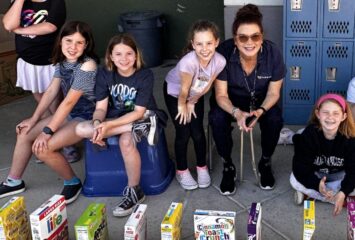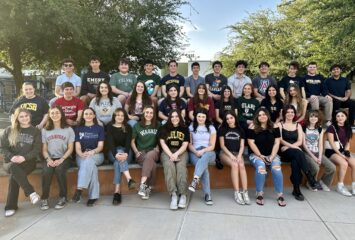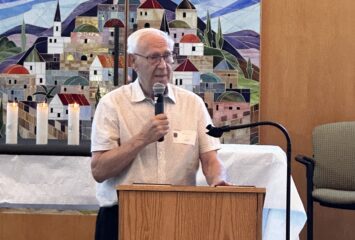The Power of Workshop in our Older Grades – Reflections from a Middle School Teacher
by Sara Abrams, Sixth Grade Humanities Teacher
When the announcement finally came in, a phone call from a colleague, “We’re closing the campus and are going to be enacting our remote learning plan,” my heart collapsed. So much of who I am is entrenched in my classroom, with my students, amongst my colleagues.
I prepared for this, and I prepared my students for this possibility, but now that it is a reality, I’m not so sure, I worried.
My heart, still thumping loudly inside, continued as I took a last trip to school. A trip to the school to grab anything and everything I could possibly need for the next three to five weeks while also watching kids grab essentials from their lockers, was followed by a solemn drive away from a campus I had grown to know as my safe haven.
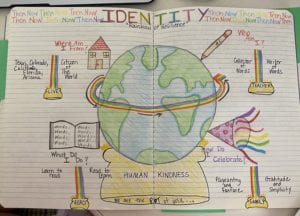
I came home to eerie silence, a distant echo of children in hallways and on playgrounds, but set to work in creating a space where Humanities could still survive. And maybe thrive, I hoped.
Once my workspace was set up, complete with a mini whiteboard, chargers for my devices, and my lesson plan book, I set up my Workshop space. I placed my notebook carefully right next to my device. I hung my chart paper on the wall with anchor charts from previous units, and stacked my units of study books, along with the book club books I still needed to read, and a makeshift document camera at the top of my desk.
I hung a drawing a student had given to me the last day we learned together on campus.
In preparation for the lessons to come, I reflected because that is what Workshop forces us to do with such automaticity.
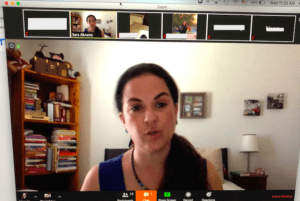
I thought to myself, Thank goodness my students know the workshop model. They are used to a mini lesson of less than ten minutes. They are used to independent work time. They are used to small groups, voiceover mid-workshop teaching points, and shares. They will get through this because the Workshop Model was designed for independence. The Workshop Model teaches the Readers, not the reading. It teaches the Writers, not the writing.
Once the dust settled and my heart rate returned to a new normal, I got ready for my first Live lesson with my students.
That first week of remote classes was a mixture of tears and laughter. The faces of the students whom I had grown to love as if they were my own, reflected the same emotions the entire world was feeling.
Fear.
Anxiety.
Uncertainty.
And, a whole lot of Gratitude.
So, like the greats at Teachers College, I used this.
I finished up a unit on Teen Activists, repeated strategies from favorite units like Social Issues Book Clubs, and began planning a robust unit on Poetry.
Writing about teen activists who are speaking up and out about climate change, policies, or rights for all had never felt more relevant.
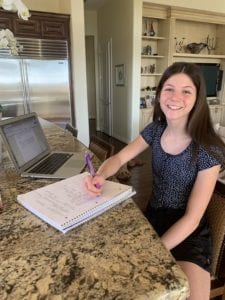
Rich discussions about power imbalances and group struggles of our immigrant population had never felt more relevant.
Finding poetry all around and inside of us has never felt more relevant.
To say the very least, reading, writing, and sharing has never felt more relevant or essential than in this very moment. We are living history. The choices we make today shape us into who we will become tomorrow.
With each unit, the remote learning has gotten more, dare I say, normal because while we may be sitting on comfy beds, sunny patios, couches, or at desks, we are connecting with each other, engaging with the material, and feeling JOY as Writers and Readers (with a capital W and a capital R!). Most of all, we are demonstrating RESILIENCE because we know we are all in this together, teachers, students, caregivers.

